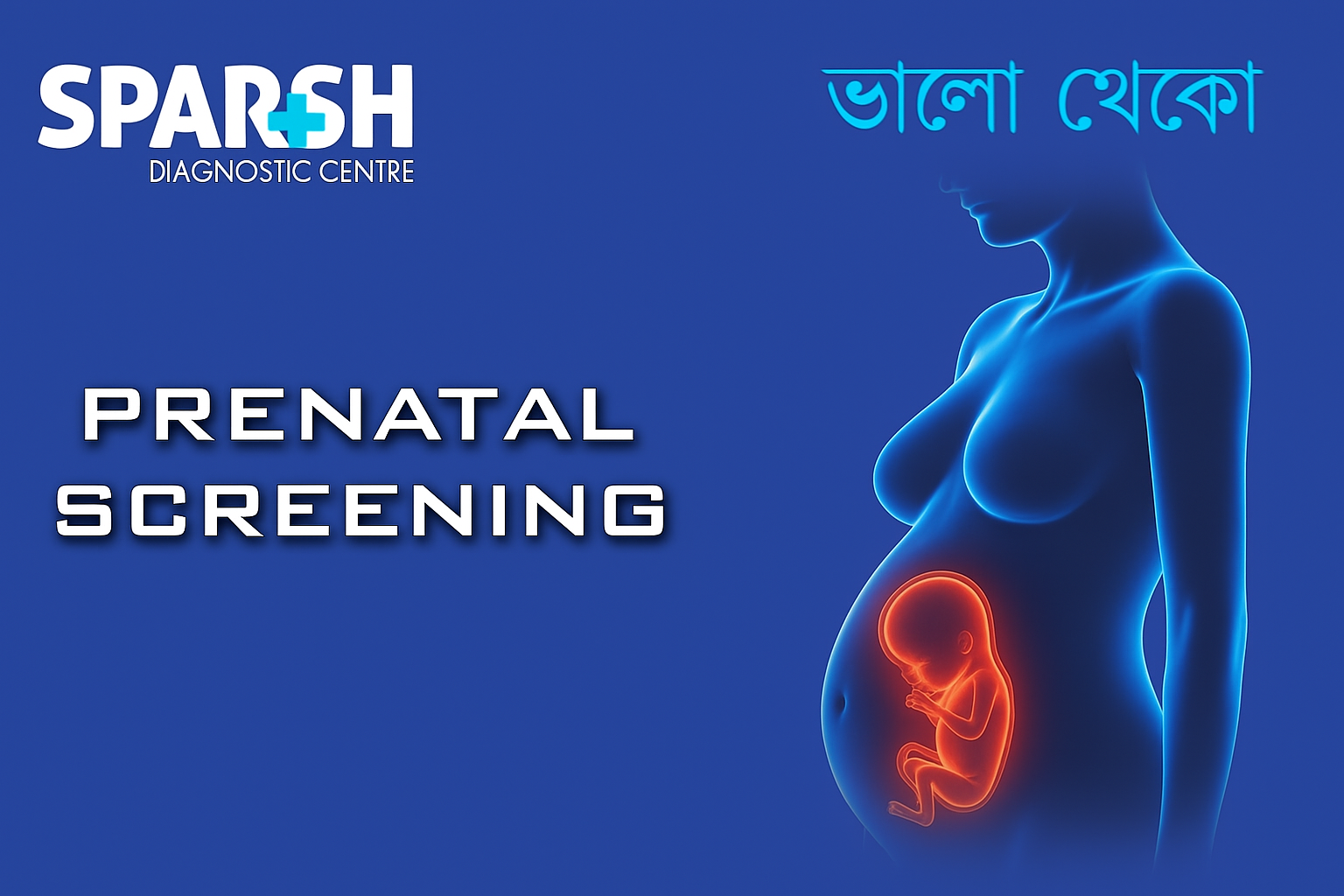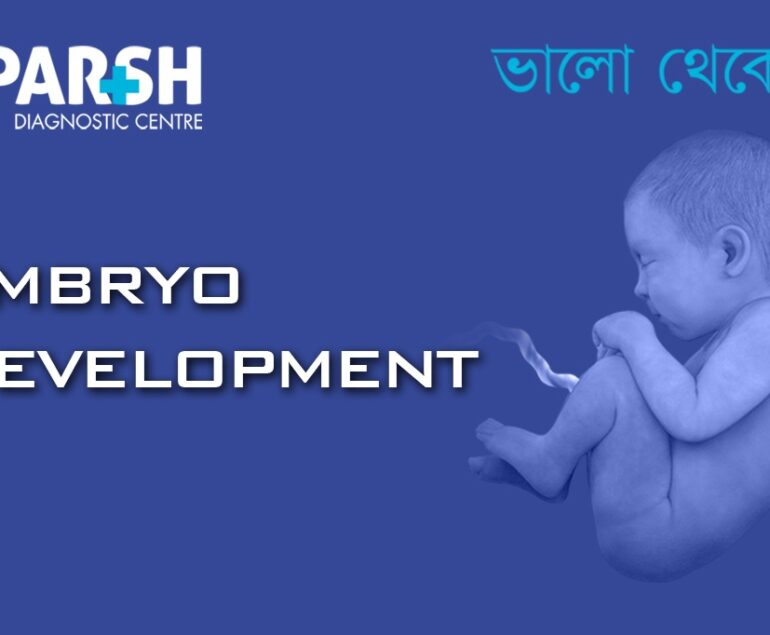Pregnancy is a remarkable journey filled with excitement, anticipation, and responsibility. One crucial aspect of ensuring a healthy pregnancy is prenatal screening—a series of tests conducted during pregnancy to assess the health of both mother and baby. Prenatal screening helps identify the likelihood of genetic conditions, chromosomal abnormalities, and birth defects, empowering parents and doctors to make informed decisions about pregnancy care.
In this guide, we’ll explore what prenatal screening is, why it matters, the types of tests available, how they are performed, and what the results mean. We’ll also discuss common FAQs that parents have when undergoing these screenings.
What is Prenatal Screening?
Prenatal screening refers to non-invasive tests performed during pregnancy to estimate the risk of certain genetic or developmental conditions in the baby. Unlike diagnostic tests, which provide a definitive answer, screening tests only indicate whether a baby has an increased chance of having a condition.
Some of the conditions prenatal screening can assess include:
Chromosomal abnormalities (e.g., Down syndrome, Trisomy 18, Trisomy 13)
Neural tube defects (e.g., spina bifida)
Genetic disorders (e.g., cystic fibrosis, sickle cell anemia)
It is important to note that prenatal screening is optional and not all parents choose to undergo it. However, many find it valuable in planning for their baby’s health and future.
Why is Prenatal Screening Important?
Prenatal screening provides critical insights into a baby’s development and potential health risks. Some key benefits include:
Early Detection – Identifies the likelihood of genetic or chromosomal abnormalities early in pregnancy.
Better Preparation – Helps parents emotionally and medically prepare if a child is at risk of a health condition.
Informed Decision-Making – Enables doctors to recommend further diagnostic tests or specialized care.
Personalized Pregnancy Care – Allows for tailored prenatal monitoring and delivery planning.
Reducing Risks – Some screenings also assess risks for maternal health conditions like preeclampsia and gestational diabetes.
Types of Prenatal Screening Tests
Prenatal screening is typically divided into first trimester screening, second trimester screening, and newer advanced tests like non-invasive prenatal testing (NIPT).
1. First Trimester Screening (11–14 Weeks)
This is usually the first set of screening tests offered during pregnancy and includes:
Blood Tests: Measures levels of pregnancy-associated plasma protein-A (PAPP-A) and human chorionic gonadotropin (hCG). Abnormal levels may indicate risk for chromosomal abnormalities.
Nuchal Translucency (NT) Ultrasound: An ultrasound that measures fluid at the back of the baby’s neck. Extra fluid can indicate Down syndrome or other abnormalities.
Conditions screened: Down syndrome (Trisomy 21), Edwards syndrome (Trisomy 18), Patau syndrome (Trisomy 13).
2. Second Trimester Screening (15–20 Weeks)
Also known as the quad screen or triple screen, this blood test measures:
Alpha-fetoprotein (AFP)
hCG
Estriol
Inhibin-A (for quad screen)
Conditions screened: Neural tube defects, Down syndrome, Trisomy 18, and certain pregnancy complications.
3. Ultrasound Screening (18–22 Weeks)
The anomaly scan (or level-2 ultrasound) is conducted around mid-pregnancy to examine the baby’s organs and structures.
This ultrasound checks for:
Heart defects
Neural tube defects
Abnormal limb development
Kidney and abdominal wall defects
4. Non-Invasive Prenatal Testing (NIPT)
NIPT is a highly accurate screening test that analyzes fragments of fetal DNA circulating in the mother’s blood. It can be performed as early as 10 weeks of pregnancy.
Conditions screened:
Down syndrome
Edwards syndrome
Patau syndrome
Sex chromosome abnormalities (e.g., Turner syndrome, Klinefelter syndrome)
NIPT is considered one of the most reliable non-invasive screening methods, with over 99% accuracy for some conditions.
5. Carrier Screening
This test checks whether either parent is a carrier of genetic conditions like cystic fibrosis, thalassemia, or sickle cell anemia. If both parents are carriers, the baby may inherit the condition.
Difference Between Screening and Diagnostic Tests
While screening tests estimate the likelihood of a condition, diagnostic tests provide a definitive answer.
Screening Tests (non-invasive): Blood tests, ultrasounds, NIPT
Diagnostic Tests (invasive): Amniocentesis, Chorionic Villus Sampling (CVS)
Diagnostic tests are usually recommended only if screening shows an increased risk.
How Prenatal Screening is Performed
The process depends on the type of screening:
Blood Tests: A small blood sample is taken from the mother’s arm.
Ultrasound: Performed using high-frequency sound waves to create images of the baby.
NIPT: Requires a blood sample from the mother.
Carrier Screening: Usually a blood or saliva sample from the parents.
These tests are safe for both mother and baby.
Understanding Prenatal Screening Results
Positive/High Risk Result: Does not mean the baby definitely has the condition, but indicates a higher chance. Diagnostic testing may be recommended.
Negative/Low Risk Result: Suggests a lower likelihood, but does not completely rule out the condition.
It’s crucial to discuss results with your doctor or genetic counselor for clarity and next steps.
Risks and Limitations of Prenatal Screening
Although generally safe, prenatal screening has some limitations:
False Positives/Negatives: Results may sometimes be inaccurate.
Not Diagnostic: Screening does not confirm conditions, only indicates risks.
Emotional Stress: Waiting for results or facing uncertain outcomes can be overwhelming.
Cost Factor: Advanced screenings like NIPT may be expensive.
Preparing for Prenatal Screening
Expecting parents can prepare by:
Understanding the purpose of each test.
Asking questions about risks and benefits.
Discussing family medical history with their doctor.
Knowing their options if results suggest high risk.
Prenatal screening is a powerful tool that gives expecting parents valuable insights into their baby’s health and development. While it cannot provide absolute certainty, it helps in identifying potential risks early and allows for better planning and care. Every pregnancy is unique, and decisions regarding screening should always be made in consultation with healthcare professionals.
Frequently Asked Questions (FAQ)
1. Is prenatal screening mandatory?
No, prenatal screening is optional. However, most doctors recommend it to ensure early detection of potential risks.
2. When is the best time to undergo prenatal screening?
The first screening usually happens between 11–14 weeks, followed by second-trimester screening at 15–20 weeks.
3. What happens if my screening test shows a high risk?
Your doctor may recommend diagnostic tests such as amniocentesis or chorionic villus sampling (CVS) to confirm results.
4. Is prenatal screening safe for the baby?
Yes, screening tests like blood work, ultrasounds, and NIPT are safe and non-invasive.
5. How accurate is prenatal screening?
Accuracy varies by test. For example, NIPT has over 99% accuracy for Down syndrome, while traditional blood tests are less precise.
6. Does a normal result mean my baby is completely healthy?
Not necessarily. Screening lowers the likelihood of certain conditions but cannot guarantee a completely healthy baby.
7. Can prenatal screening detect all birth defects?
No. Screening only identifies the most common chromosomal and genetic conditions. Some birth defects may not be detected until later in pregnancy or after birth.
8. How much does prenatal screening cost?
The cost varies depending on the type of test and location. Basic blood tests are usually affordable, while NIPT can be more expensive.
9. Should both parents undergo genetic carrier screening?
Yes, it’s often recommended, especially if there is a family history of genetic conditions.
10. What if I decide not to do prenatal screening?
It’s a personal choice. Some parents prefer not to undergo screening, while others find it reassuring. Always discuss with your healthcare provider before making a decision.
#BhaloTheko
Disclaimer:
No content on this site, regardless of date, should ever be used as a substitute for direct medical advice from your doctor or other qualified clinician.

![]()






[…] 18 can be detected during pregnancy through prenatal screening and diagnostic […]
[…] Sparsh Diagnostic Centre, we offer comprehensive prenatal screenings, blood pressure monitoring, and diagnostic imaging services to help identify and manage high-risk […]
[…] of anxieties. Expectant parents want to ensure their baby is healthy and thriving, which is why prenatal screening tests play such an important role. One such test is Chorionic Villus Sampling (CVS) – a procedure that helps detect genetic or […]
[…] trimester – Discusses prenatal screening, early development, and emotional […]